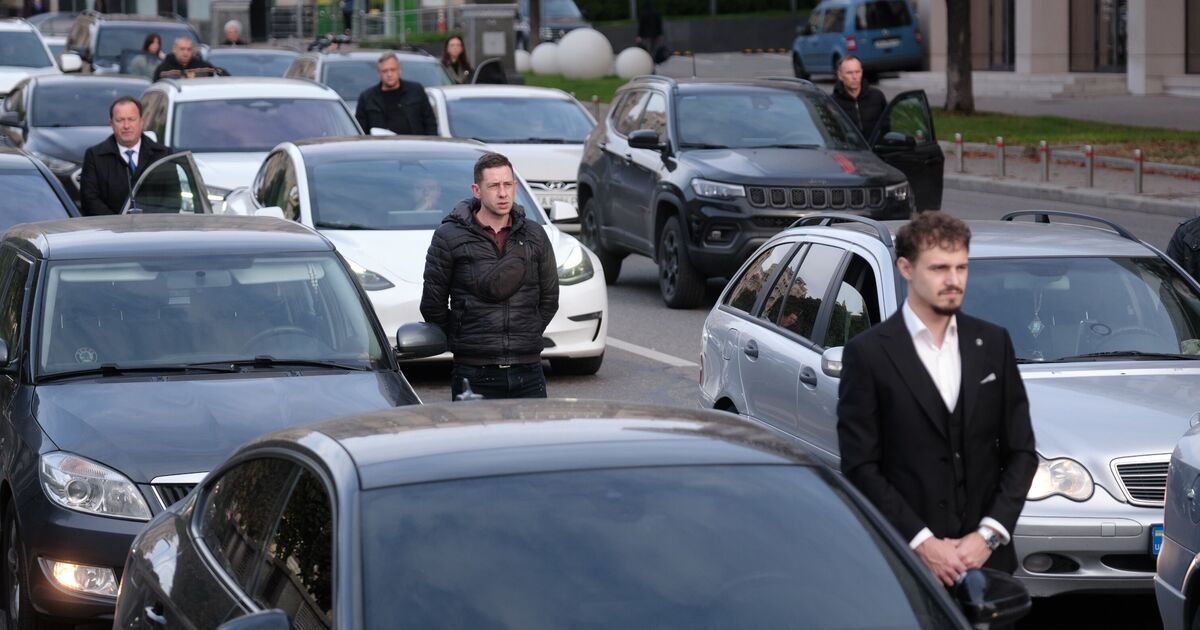After a typical night filled with the sounds of howling air raid sirens, whirring drone engines and the occasional barrage of exploding missiles, many in Kyiv find solace in silence – one minute’s worth, to remind them of why they are still alive and free of Russian occupation.
Every day at 9am – rush hour in the nation’s still bustling capital – rank and file civilians, indoors and on the street, are called upon to halt what they are doing, stand still and recall their fallen heroes in quiet. Servers in busy eateries, shop assistants in shopping malls, policemen gathered around a coffee kiosk – and since late last month, motorists driving along the city’s main street Khreschatyk – all stop in their tracks to show their respect.
Some commuters even get out of their cars and solemnly lower their heads in the middle of the road.
Like many things in war-time Ukraine, the Minute of Silence started out as an expression of national unity but soon grew into a social obligation, a fledgling national tradition.
On a rainy weekday morning last week, Kyivans poured out of the metropolis’ cavernous Metro stations in the city center, heading to work with bags under their arms and umbrellas over their heads.
Then, just before the clock on Independence Square struck 9 O’clock, a pleasant but firm female voice became audible from an unseen loudspeaker, informing all in earshot to stop what they were doing and observe a respectful quietude.
Most did – halting in their steps, often lowering their gaze as if attending a church service, while the ticking of a clock could be clearly heard through the sound of pattering rain drops and the hush of people holding still.
Men and women, young and old, could be seen in small groups or standing alone, some getting wet while others remained near the foot of the stairs leading out of the underpasses.
Elderly municipal workers in Orange vests put down their tools, and young girls in coffee kiosks stood erect at their windows.
Volodymyr and Anatoliy, in their 50s, stood their ground on the street above, appearing comfortable as they took up their positions for the solemnity.
They said they always stop what they are doing, wherever they are at at this time, to show their respect, “For those who have died and their memory.”
Masha, a twenty-something woman who works in the shopping mall below the square, said she feels it is important to show solidarity.
She said: “Everyone else does it, so I do as well. I have lots of relatives and friends who have perished during this war, so it means a lot to me.”
Alina, a weathered middle-aged woman who makes her living selling flowers to passersby near the Metro Station entrance, said she also observes the Minute of Silence, along with her customers.
But due to the fast-paced nature of her trade, she often cannot afford to halt her sales, even for a minute.
She said: “If I am in the middle of selling, I hand over the flowers and take the money but keep silent the whole time. I have children to feed so I cannot stop working.”
Yury, a young man walking his dog on the square, said he observes the Minute of Silence if he’s in public but that the tradition is still taking hold.
He said: “Drivers don’t always understand why they need to stop in the middle of traffic. For pedestrians, it is a lot easier.”
The important thing, he said, is that the young take notice and remember even after the war ends.
He said: “For centuries they [the Russians] destroyed our traditions. Now we have to restore them.”

